August 9th was Book Lover’s Day, so in honor of this bookish holiday, we’re bringing you a list of nine books from one of the libraries of Chefalo Consulting’s own Becca Choi!
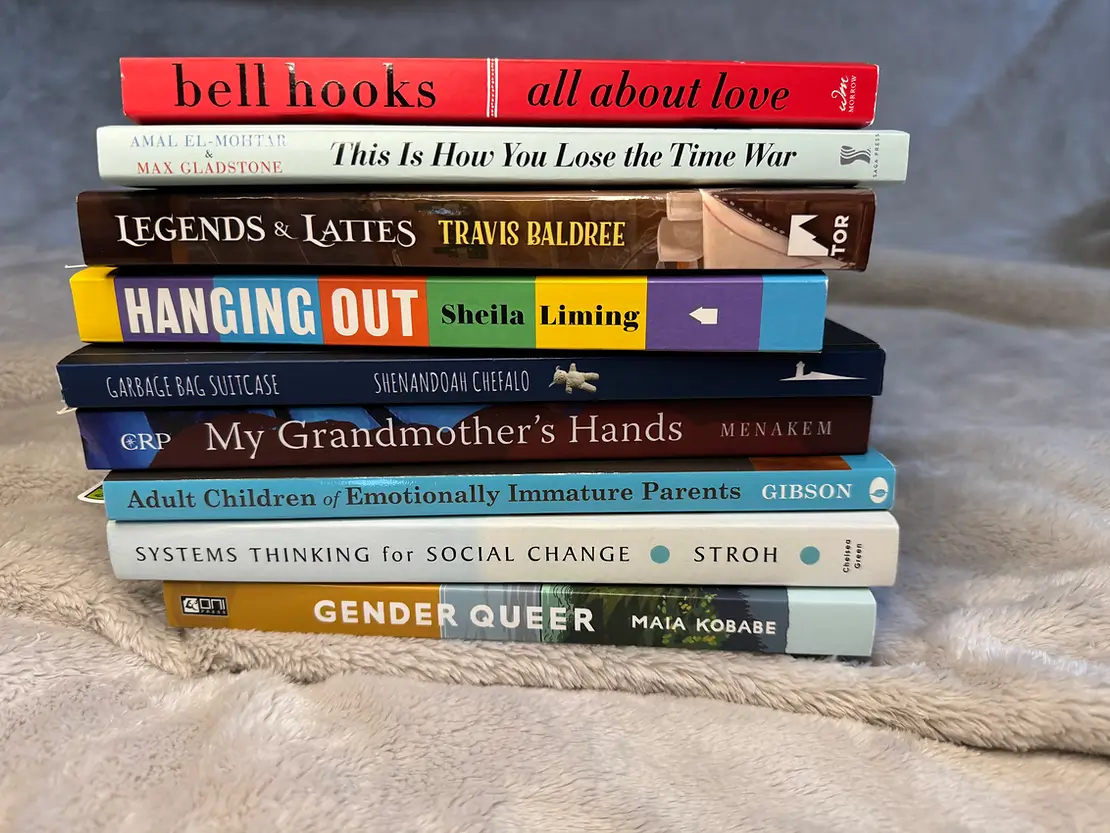
Positive social change is a serious passion of mine, and as a leader of trauma-informed systems change, people often come to me for answers. They ask, “What should I do?” or “How can I affect change?” And the answer is much more complex than they expect.
This work is inside-out work. If we hope to shift an entire culture, an entire system, well, that change doesn’t start in just one place. There are countless “starts” in each and every one of us. So, if you were to ask me where can you start right now, I’d say pick up a book. Learn. Take care of yourself. Change happens in small ways, in each of us, every single day.
So, why reading? For me, reading helps me take care of myself and the world around me. Books serve as a support to help me process my experiences in the world we live in. They allow me to experience the full spectrum of human emotions (I love a book that will make me cry), they give me the gift of knowledge, and they create a space where I can practice my “listening” and critical thinking skills.
Now, reading isn’t the only tool I use to support myself and my personal growth, and it isn’t the best tool, either. It is a tool. And, as you walk your own trauma-informed journey, I encourage you to fold in other tools alongside (or instead of) reading. After all, it is your journey.
You might be surprised by this cozy fantasy fiction book, and yes, you’re still in the right place. I’m a strong believer that well-written fiction is a powerful tool for personal development.
Starting off strong, Legends & Lattes is an adventurous cozy read that follows an adventurer who’s ready to retire from her rough-and-tumble life and start anew in a coffee shop. The first in a duo from author Travis Baldree, Legends & Lattes is a wholesome story that explores the theme of slowing down.
“It is sweet, beautiful, and, most of all, kind. I hugely recommend this book.” – Seanan McGuire
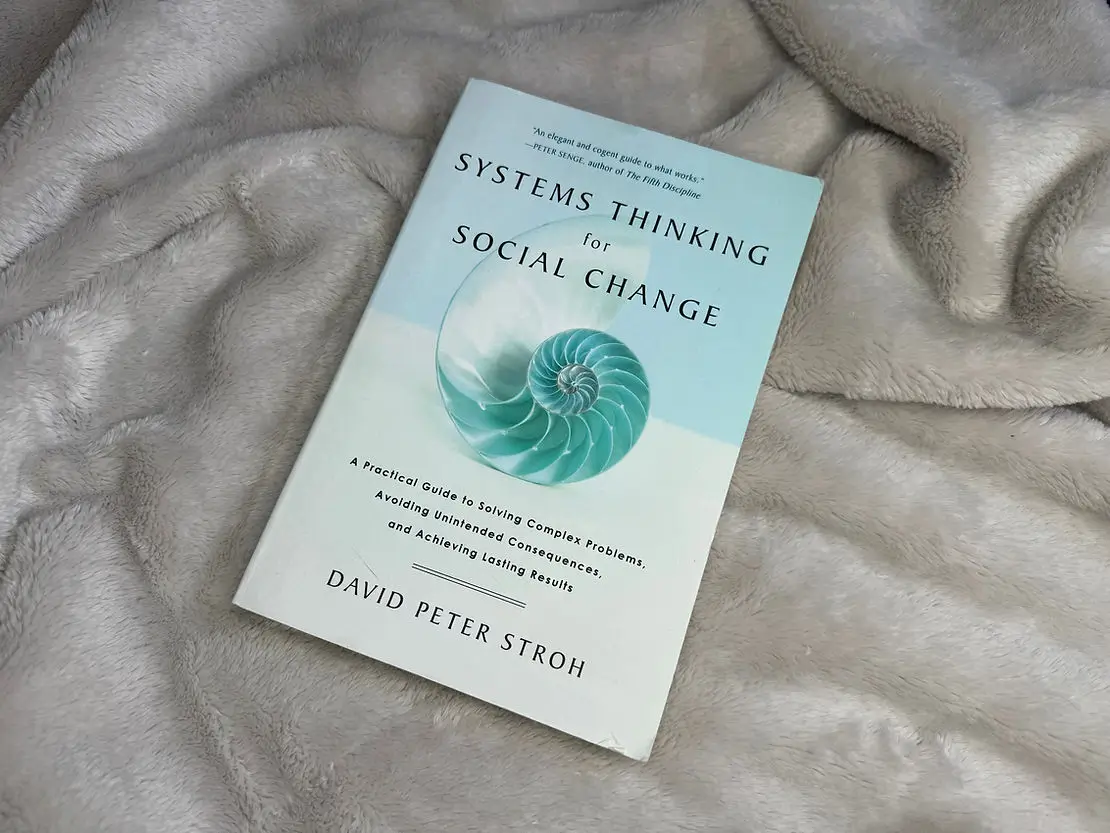
Stroh’s work is a 180-degree turn from Baldree’s, but (in my opinion) it’s just as good. I recommend this book to nearly every client we work with at some point because the concepts Stroh teaches lie at the center of the work we do. Systems Thinking for Social Change feels like one of those books that hold the key to the universe. In it, I’ve found an immense understanding of our biggest collective issues—and how we can actually solve them.
It’s a bit of a dense read; however, if you can commit to it, it will give you one of the greatest takeaways: hope. Change is possible, and someone’s already figured out the science of it, so you don’t have to.
“An elegant and cogent guide to what works.” – Peter Senge
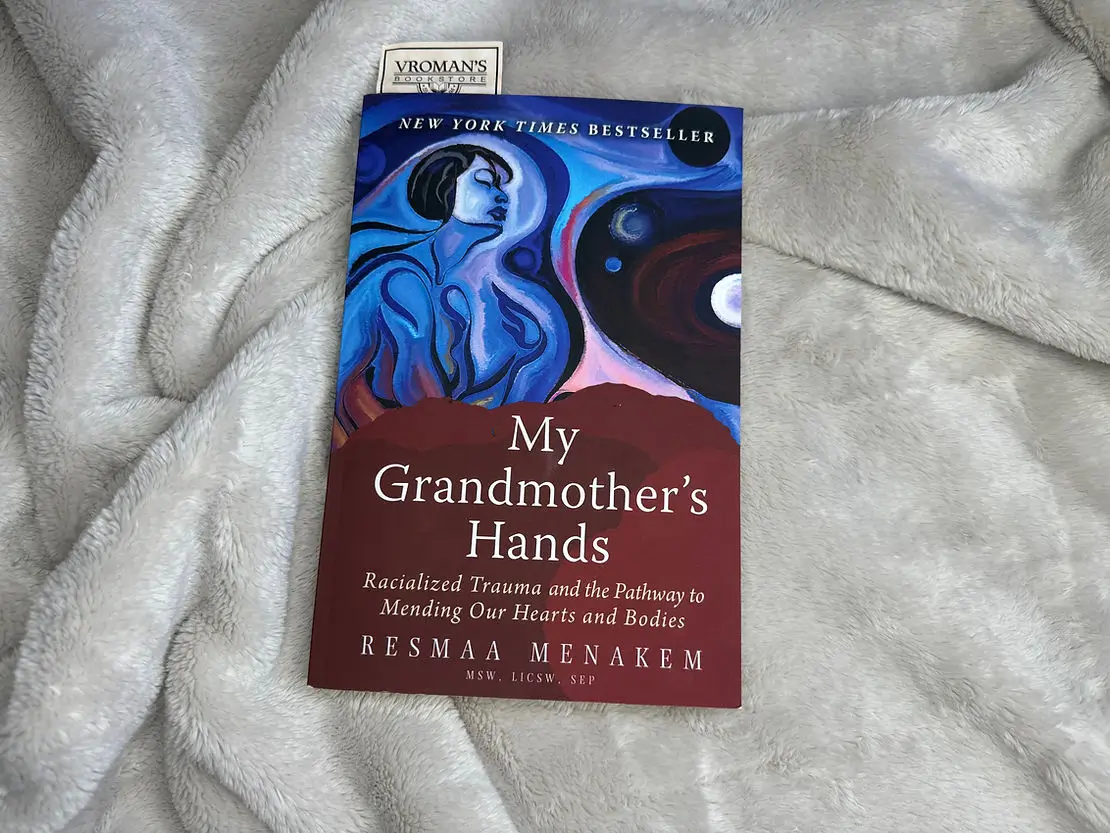
My Grandmother’s Hands is a wonderful book and an especially important read for those living in the United States. I like that there are grounding exercises throughout the book to help bring you back into your body and the present moment.
If I’m going to be really honest with you, I also sometimes dislike these exercises for the same reason I sometimes dislike going to therapy. I have many strong and unpleasant feelings about injustice and inequity, and these grounding exercises help me feel my feelings (thanks for that, I guess).
Menakem’s work is extremely beneficial, and I would recommend it to anyone who is looking for a resource to help them heal their personal trauma and address their relationship to structural violence.
“My Grandmother’s Hands will change the direction of the movement of racial justice.” – Robin DiAngelo
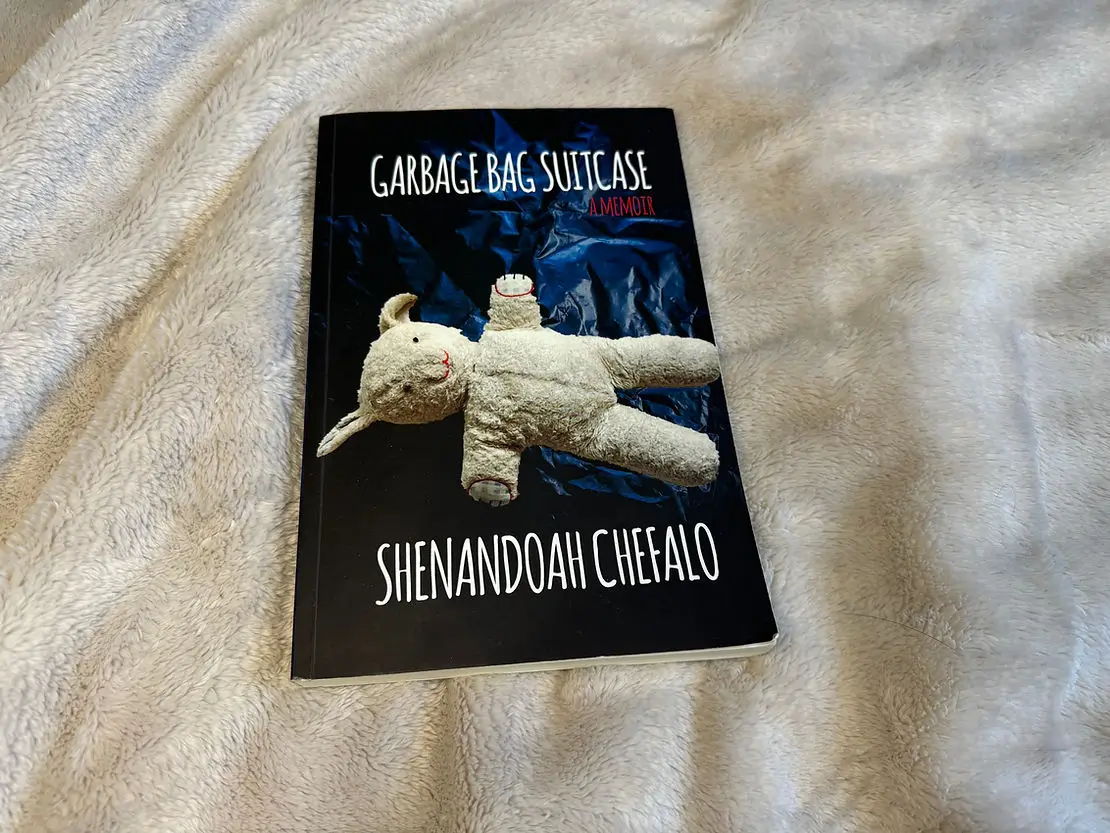
Of course, I’ve read Shen’s memoir, Garbage Bag Suitcase! It’s an interesting experience reading the memoir of someone you know in real life; and Shen’s memoir is an especially heartbreaking and inspiring story. Sometimes, when Shen and I are on the road training, and we get to chatting, I think, “You didn’t put that in your memoir,” and that thought is quickly followed up with, “You should put in your next one.”
Oh, and the next one is coming soon, too! (But you didn’t hear it from me).
If you’re at all interested in the “origin story” of Chefalo Consulting or Shenandoah Chefalo, pick up a copy of Garbage Bag Suitcase.
“A poignant and compelling memoir that has inspired me to take action to improve the lives of foster kids in our country.” – Susan Schaefer Bernardo
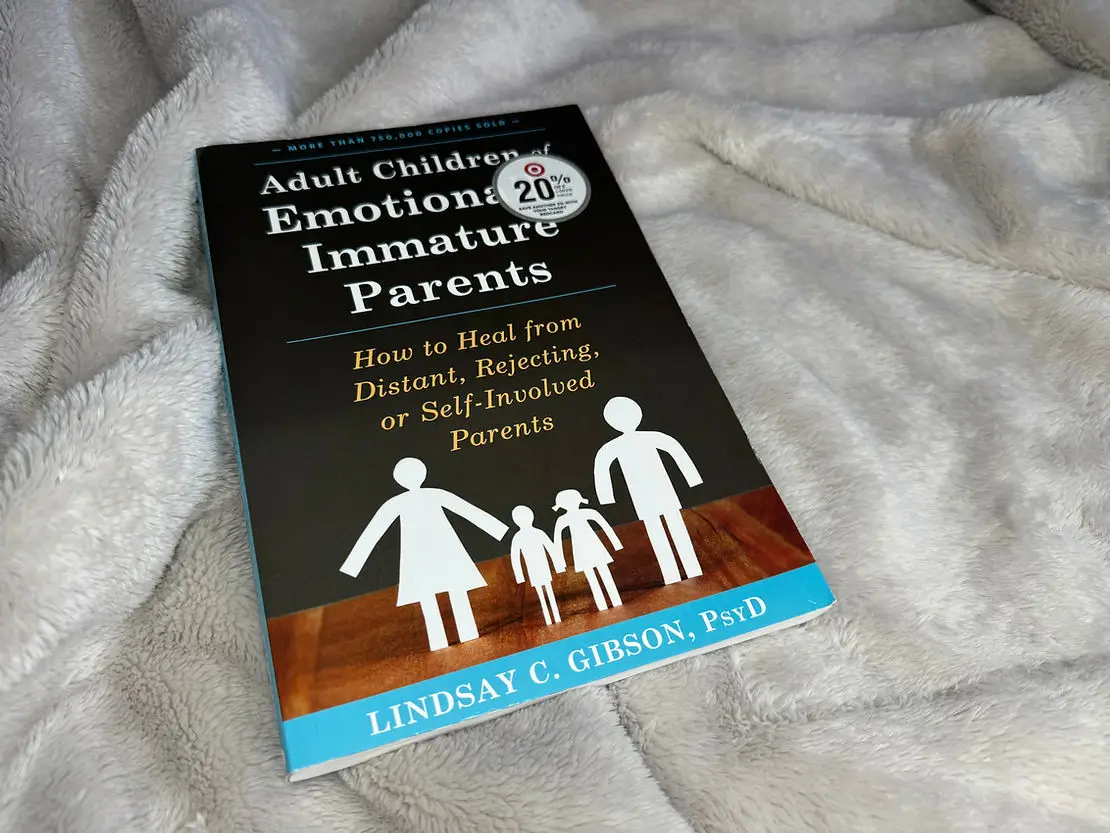
Am I showing all my cards by sharing this? Maybe, but that’s okay. People who are drawn to trauma-informed systems usually aren’t unscathed by their childhoods. If you can relate, you might also like this book. It’s an incredibly insightful read that has some kernels of wisdom I found very healing.
I did find myself feeling that was a bit of a lack of nuance in the book. I felt it sometimes sent the message that “Your parents are bad, and you are good,” which is not true—my parents did the best they could. They’re not bad people (and frankly it took a lot of work for me to get to this stance). So, I highly recommend leaning into your trauma-informed paradigm shift tool if you decide to give this one a read.
“An insightful and compassionate guide.” – Ronald J. Fredrick
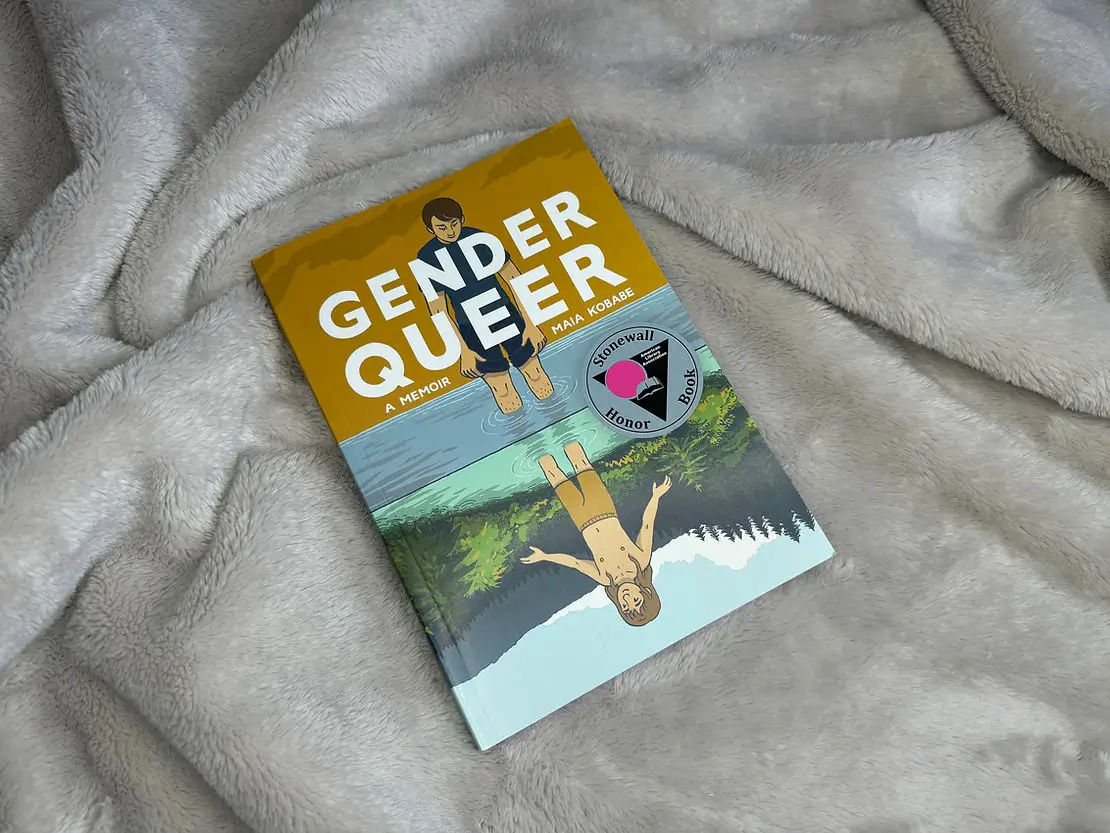
This is a graphic novel and a memoir, and because of that, it’s a very quick read. It is a story of self-discovery, queerness, and humanity, told through beautiful illustrations. I found this story to be incredibly relatable, and I appreciated that it made me feel seen. And, I would recommend this book to anyone of any gender. Not only does buying a book by genderqueer author support them, it also gives you the chance to peek into someone else’s world and see what it’s like to be them.
Fair warning, it does have some illustrations that may not be safe for all workplaces.
“I needed this book 20 years ago. Words can not describe how much I love this book.” – Tyler Gray
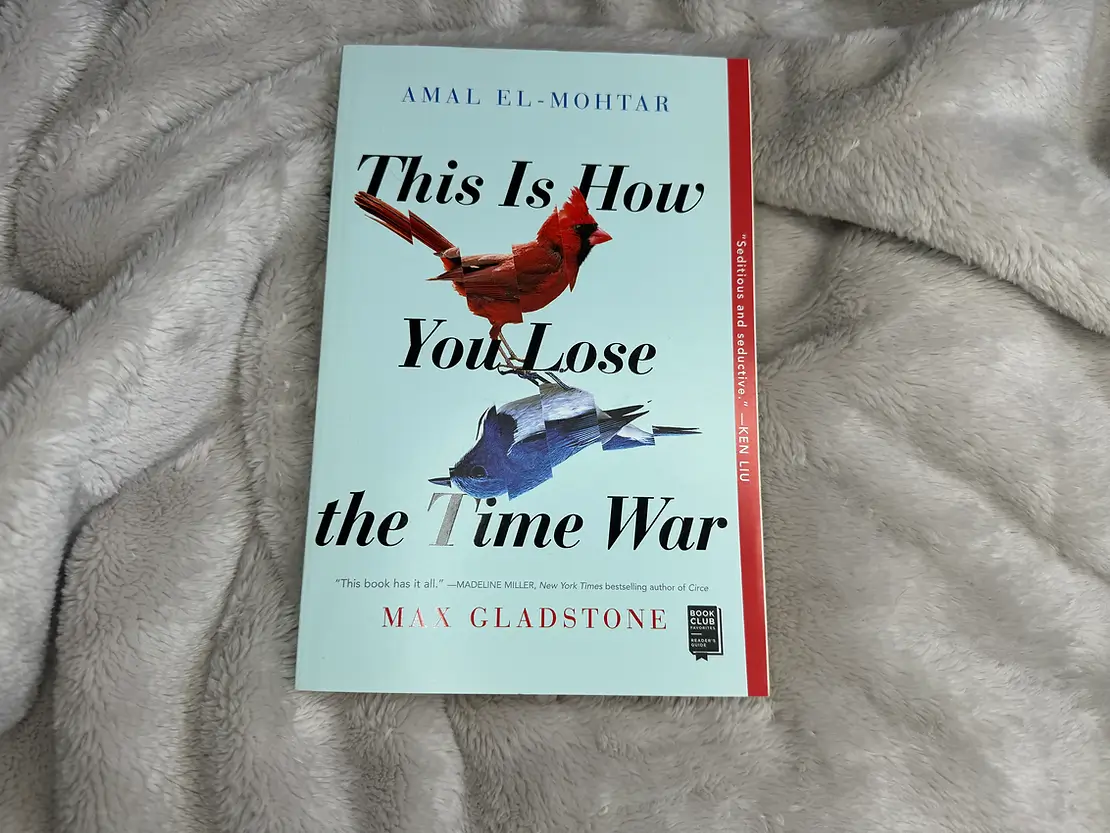
This is How You Lose the Time War is a beautifully written enemies-to-lovers romance that holds a spot in my top three favorite books of all time. This book of fiction reads like poetry, and it explores themes that are so deeply tied to our humanity: war and conflict, communication, loyalty, the cycle of life, time, and so much more.
El-Mohtar and Gladstone have gifted the world with this absolute treat of a book.
“Holy s*** this was good.” – V.E. Schwab
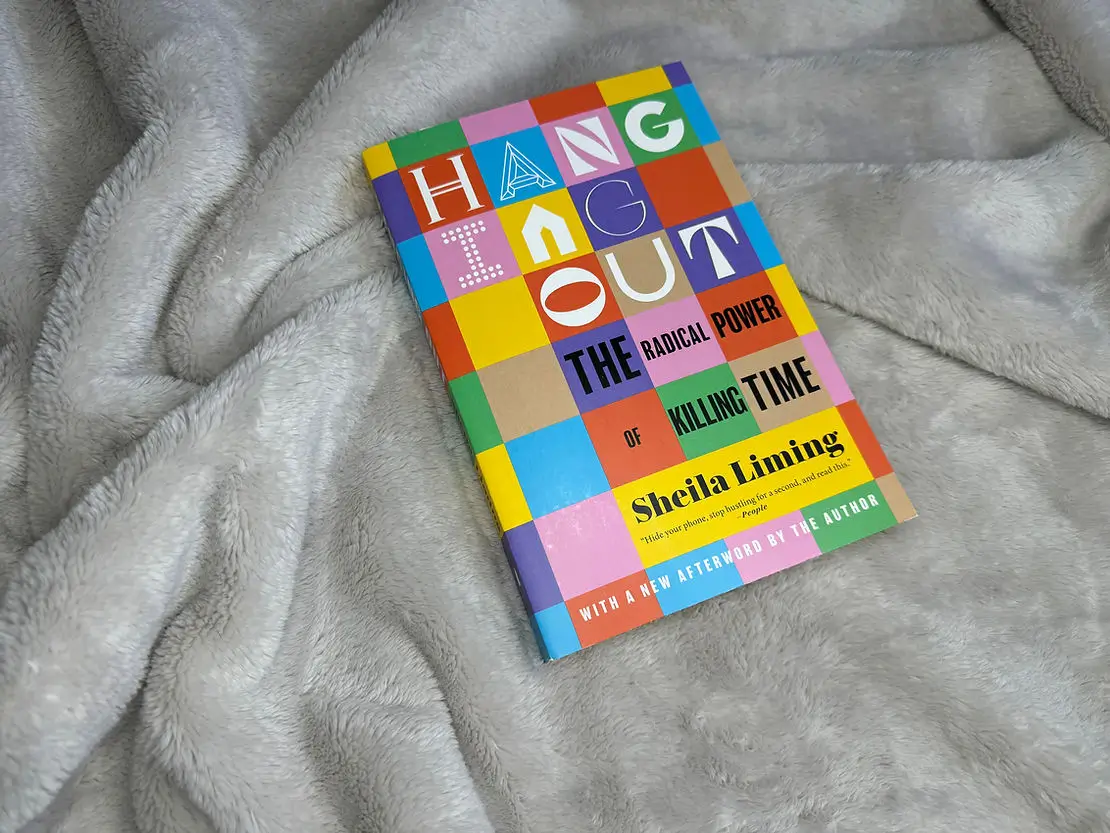
I recently picked this up at a cute indie bookstore in LA called Skylight Books. A friend of mine spotted it on the shelves and thought, “Becca would like that.” She was right, and I purchased it along with a card that says, “It’s okay to feel sad.” I don’t know who’s going to receive the card yet, or why, but grief, loss, and sadness are all part of life. Its time will come. Anyway, this one is still on my to-read list, but in the meantime, I’m enjoying its colorful cover on my bookshelf!
“Hide your phone, stop hustling for a second, and read this.” – People
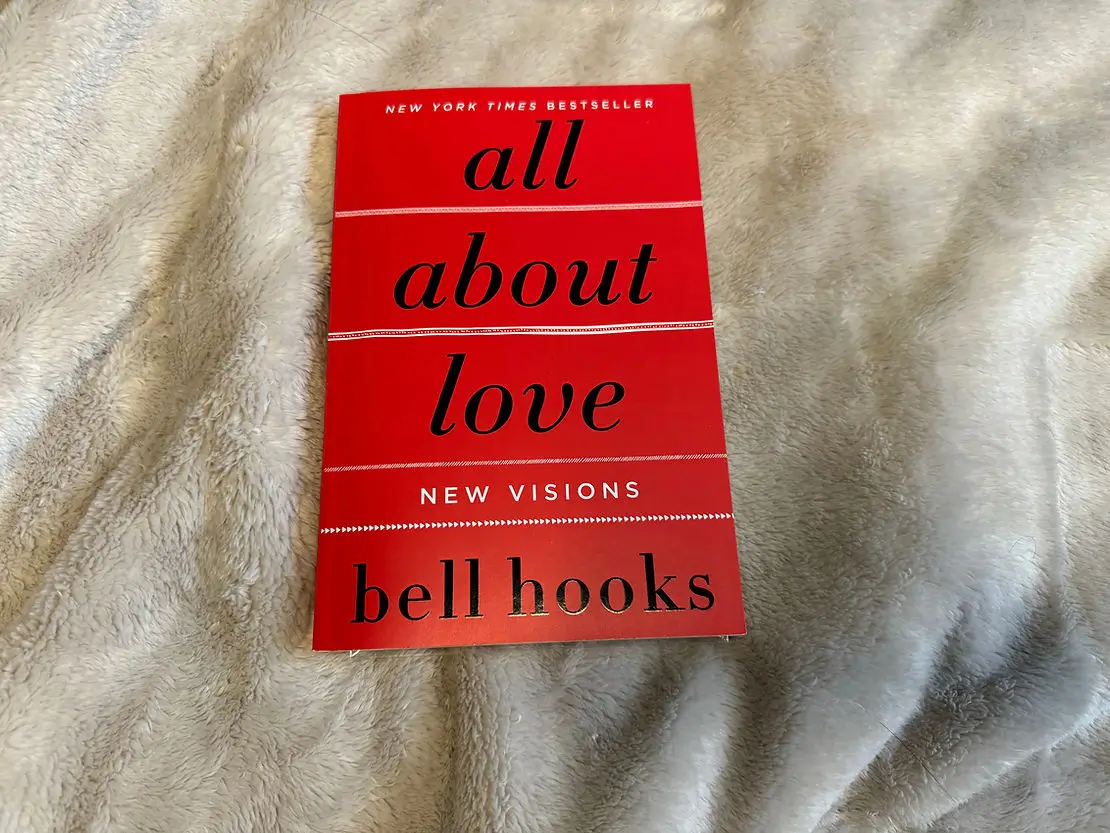
Another book in my to-read pile, All About Love, is, well, all about love. As someone whose work involves spending a long defining “trauma-informed,” I’m sold on the idea that we need an entire book to define love. Love is complex and mysterious, and it ties into our relationships, our attachments, and our resilience. I can’t wait to get around to this book by bell hooks (and then all her other books).
“Each offering from bell hooks is a major event, as she has so much to give us.” – Maya Angelou

Personal development and ongoing growth is one thing that’s on my mind almost all the time. I’m always focused on how to do better and be better—and it can be exhausting. I’ve been on the road where I hyper-focused on personal development, and I felt guilty if I took a break.
But taking breaks is a big part of personal development. Rest and play are just as important as learning and growth. We need to balance all these pieces to have a healthy life.
So, if you need explicit permission to rest—this is your sign. Make yourself your favorite beverage, pick a cozy spot, and enjoy a good book this week simply because you deserve to do what makes you happy.
We can signal to others that they are valuable and worth knowing through …
If you want to improve outcomes at your organization, then focusing on improving …
Trauma is pervasive and often overlooked. By understanding how our survival instincts (also …